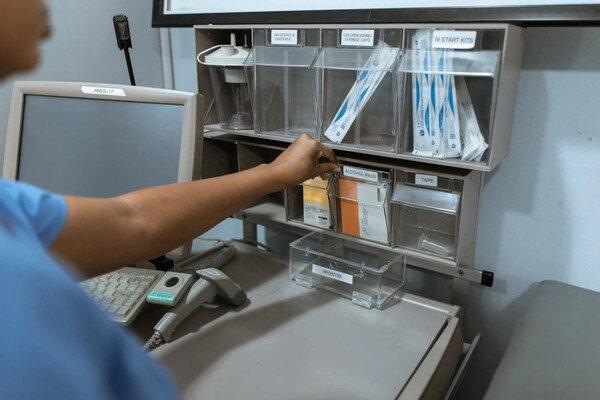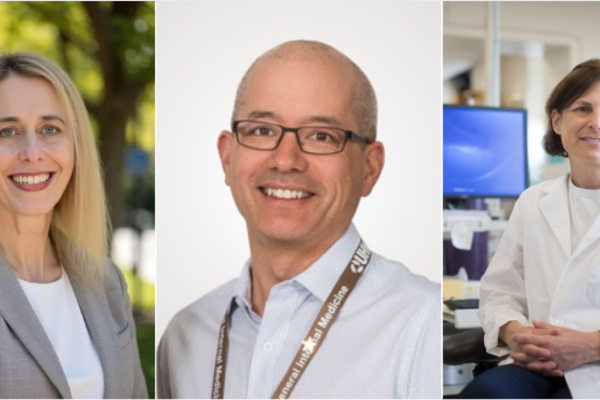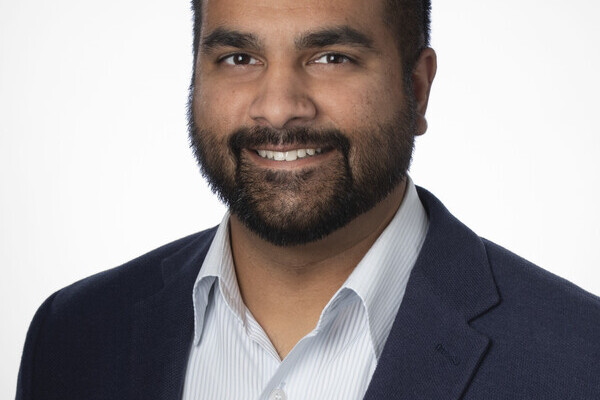Main Second Level Navigation
- Welcome
- Why Toronto?
- History of the Department
- Vision & Strategic Priorities
- Our Leadership
- Our Support Staff
- Location & Contact
- Departmental Committees
- Department of Medicine Prizes & Awards
- Department of Medicine Resident Awards
- Department of Medicine: Self-Study Report (2013 - 2018)
- Department of Medicine: Self-Study Report (2018 - 2023)
- Communication Resources
- News
- Events
HIV Network: Q&A with Dr. Rupert Kaul
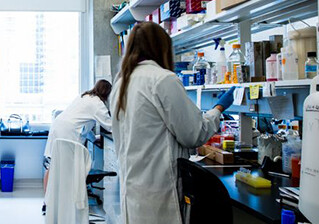
Rupert Kaul
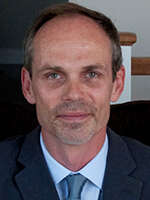 Do the numbers regarding the prevalence of HIV, particularly within certain demographics in Toronto, surprise you? Do you think the numbers would surprise the lay public?
Do the numbers regarding the prevalence of HIV, particularly within certain demographics in Toronto, surprise you? Do you think the numbers would surprise the lay public?

I did my clinical infectious diseases training here in Toronto, and then I went away to Kenya to work on HIV transmission and immunology research. There the population prevalence used to be around 12%, which was a true public health emergency, and when I came back to Toronto I assumed that the numbers would be much lower. Of course they are from a population perspective, but the story is quite different when you look at specific local communities. The prevalence is 2-4% in the African-Caribbean community, which is way above the population norms, and even more surprising to me was that between 18-20% of gay men in Toronto are living with HIV. You begin to realize that these communities were truly decimated by this infection in the days when it was uniformly fatal, and even though we’ve now got great treatment available, HIV still poses a tremendous challenge.
There’s an extensive network of HIV researchers in Toronto across multiple hospitals and institutes. How did this network come about and can you talk a little bit around the cross-collaborations?
There is a really vibrant and productive HIV research community around Toronto, and the group is not nearly as balkanized as people from other centres sometimes think. I’m lucky to be supported by the OHTN Chair in HIV/AIDS Research, and part of my mandate is to try and connect researchers, policy makers and community members from around the city, since when you get all of these people “around the table” we can really translate new knowledge into practice.
Most recently the OHTN has provided support to get the UT Clinical HIV Prevention Unit started, which is led by Dr. Darrell Tan and is particularly focused on how to implement HIV pre-exposure prophylaxis (PrEP) among those in Toronto who most need this new prevention technology. Darrell works closely with Isaac Bogoch, who runs the PrEP Clinic at UHN, and is also hoping to tie in the Maple Leaf Clinic, since the team of physicians there provides primary care to about 10,000 gay men and these interconnections are critical. Of course, this type of program opens up all kinds of possibilities for research synergy in basic, clinical and social science, and so once we started that process it became apparent that there’s much more that we as researchers can do within the context of prevention programs.
The HIV Network is very interested in developing a research registry that would let people in the community see what type of research is being conducted around Toronto, let us know what projects they would be interested in, and perhaps complete questionnaires or even provide biological samples up front. That would be a fantastic resource, and at the same time might help us to understand how certain individuals are at risk and to put a prevention toolkit in place for them; there are some interesting programs conducting this type social and cultural intervention research through the Dalla Lana School of Public Health.
I would assume with so many people “at the table” there’s been some informal mentorship and leadership that’s evolved between senior and junior researchers…
There’s a wonderful existing pipeline of mentors in Toronto. This is particularly true within clinical research, where many of the scientists who have come through in the past few years, such as Mona Loutfy, Darrell Tan and Isaac Bogoch (all now well established in their own rights, or well on the way) have had mentorship from Sharon Walmsley and Anita Rachlis. On the basic science side both Mario Ostrowski and Kevin Kain have mentored great young HIV scientists, and we have some really promising trainees in the wings right now. Part of what the network will help us to do better is to network those young scientists across disciplines, so that public health scientists can synergize with social and basic sciences, and so on.
Can you talk a little bit about what is needed to expand this network?
It’s important to have received buy-in from the Department of Medicine, and our Vice-Chair, Research, Mike Farkouh has been very supportive. This will help us to lift some barriers that we’ve identified, and to work on those cross-cutting themes and priorities. Ideally the network will be supported centrally by an administrative coordinator with some real research smarts. Such a person can not only help with the negotiation of research ethics and regulatory aspects at various different hospital sites for multisite collaborations, but also spearhead novel new work like the registry. We want to create a seminar series that is broadly engaging and accessible across disciplines and includes scientifically-literate community members, as well as our trainees. And of course, we’re always looking towards fundraising, and a program of small seed grants can be tremendously useful to leverage larger multi-site grants. Those are the top priorities the HIV Network identified for the immediate future during our recent retreat.

